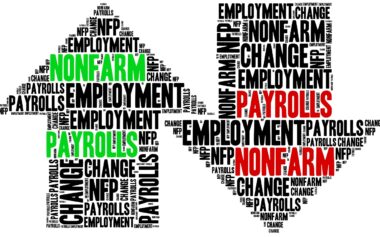Trading for Prop Firms: Benefits and Challenges

Trading for proprietary firms (prop firms) has become increasingly popular among retail traders looking to leverage their skills in the financial markets.
Prop firms offer traders the opportunity to trade with the firm’s capital, potentially increasing their earnings without risking their own money.
However, while this model presents several benefits, it also comes with its fair share of challenges and hazards.
This article will explore the advantages and pitfalls of trading for prop firms, offering an objective perspective for traders considering this path.
The Prop Firm Model: An Overview
Prop firms typically operate by allowing traders to trade the firm’s capital in exchange for a share of the profits.
In most prop firm “opportunities”, traders are required to pass a rigorous evaluation process, often involving a demo trading phase where they must meet specific profit targets and risk management criteria.
Once traders pass this evaluation, they are given access to the firm’s capital and can begin trading live accounts.
The profits are usually split between the trader and the firm, with the trader often receiving a significant portion of the earnings.
The Benefits of Trading for Prop Firms
1. Access to Significant Capital
One of the most attractive aspects of trading for a prop firm is the access to substantial trading capital.
For many retail traders, the biggest hurdle in trading is the limited amount of personal capital available.
Prop firms eliminate this barrier by providing traders with the capital needed to trade larger positions, potentially increasing their profit margins.
This access to capital allows traders to scale their trading activities far beyond what they could achieve independently.
2. Reduced Personal Financial Risk
Trading with a prop firm’s capital means that traders are not risking their own money.
This arrangement can reduce the psychological pressure often associated with trading, as losses do not directly impact the trader’s personal finances.
The risk management rules imposed by prop firms also serve as a protective measure, ensuring that traders do not take excessive risks that could lead to significant losses.
3. Structured Environment
Prop firms provide a structured trading environment with clearly defined rules and objectives.
This structure can be beneficial for traders who thrive on discipline and need a framework to guide their trading decisions.
The evaluation process, which includes specific profit targets and drawdown limits, encourages traders to develop and adhere to sound trading strategies.
4. Performance-Based Earnings
Unlike traditional employment, where income is fixed, trading for a prop firm offers the potential for performance-based earnings.
Traders who perform well can earn substantial profits, as their earnings are directly tied to their trading success.
This incentive structure can be highly motivating for skilled traders who are confident in their abilities.
The Challenges of Trading for Prop Firms
1. Stringent Evaluation Process
The evaluation process required to become a funded trader with a prop firm like FTMO is rigorous.
Traders must meet specific profit targets while adhering to strict risk management rules, often within a limited timeframe.
This process can be challenging, especially for traders who are still developing their skills or who may struggle with the pressure of passing a timed evaluation.
2. Profit Splits
While prop firms provide the capital, they also take a share of the profits.
The profit split varies from firm to firm, but it typically ranges from 30% to 50% of the earnings.
While this arrangement is fair given the firm’s investment, it means that traders do not retain the full amount of their profits, which could be a drawback for some.
3. Strict Risk Management Rules
Prop firms impose strict risk management rules to protect their capital.
These rules often include maximum daily drawdown limits, overall drawdown limits, and restrictions on overnight or weekend trading.
While these rules are designed to mitigate risk, they can also limit the trader’s flexibility and require careful management of trades to avoid violations.
4. Psychological Pressure
Although traders do not risk their own money when trading for a prop firm, the pressure to meet profit targets and adhere to strict rules can still be intense.
The knowledge that failing to meet the firm’s criteria could result in losing the funded account adds an additional layer of stress, which can impact trading performance.
Potential Hazards to Consider
1. Over-Leveraging
Access to significant capital can be both a blessing and a curse.
The temptation to over-leverage positions is a common hazard when trading with a prop firm’s capital.
While larger positions can lead to higher profits, they also amplify potential losses.
Traders must exercise caution and maintain disciplined risk management to avoid the dangers of over-leveraging.
2. Dependence on the Firm’s Capital
Relying solely on a prop firm’s capital can create a dependency that may be difficult to break.
If a trader becomes too accustomed to trading with the firm’s capital, they may struggle to transition back to trading with their own funds.
This dependency can limit a trader’s long-term growth and financial independence.
3. Contractual Obligations and Restrictions
Traders working with prop firms are often bound by contractual obligations that include specific trading restrictions.
These restrictions may limit the types of instruments that can be traded, the maximum position sizes, and even the hours during which trading is allowed.
While these rules are designed to protect the firm’s capital, they can also be limiting and may not align with every trader’s style or strategy.
4. Potential for Burnout
The pressure to meet profit targets and adhere to strict rules can lead to burnout, especially for traders who are highly motivated but struggle with the firm’s evaluation process.
The intense focus required to pass the evaluation and maintain a funded account can take a toll on a trader’s mental and emotional well-being.
Prop Firm Trading for Traders based in Australia.
Retail traders in Australia who trade for prop firms may face several compliance and legal challenges, particularly in navigating the regulatory framework set by the Australian Securities and Investments Commission (ASIC).
One significant concern is whether the trading activities conducted through a prop firm could be classified as providing a financial service.
If ASIC determines that a trader’s activities require an Australian Financial Services (AFS) licence, the trader could face penalties for operating without the necessary authorisation.
This is particularly relevant for those involved in managing client funds or offering trading advice, as these activities typically require licencing.
Another challenge lies in the contractual agreements between traders and prop firms, which may include clauses that could conflict with Australian consumer law.
These contracts often contain stringent conditions, such as non-compete clauses or restrictions on trading outside the firm, which might not be enforceable under Australian law.
Traders must carefully review these agreements to ensure they do not inadvertently breach legal obligations or expose themselves to litigation risks.
It’s also essential for traders to understand their rights under these contracts and seek legal advice if necessary to avoid potential disputes.
Lastly, the global nature of prop firms, many of which are based outside of Australia, adds another layer of complexity.
International prop firms may not adhere to Australian regulatory standards, creating risks for Australian traders in terms of the protection of their rights and funds.
The lack of clear jurisdictional authority can make it difficult to resolve disputes or recover funds in cases of fraud or mismanagement.
As a result, retail traders must conduct thorough due diligence on prop firms and consider the legal implications of trading with companies that operate under different regulatory regimes.
Conclusion: Could Trading for a Prop Firm Be Right for You?
Trading for a prop firm offers a unique opportunity for skilled traders to access significant capital and potentially earn substantial profits.
The benefits of reduced personal financial risk, a structured environment, and performance-based earnings make it an attractive option for many traders.
However, the challenges of passing a stringent evaluation process, adhering to strict risk management rules, and coping with psychological pressure should not be underestimated.
For traders who are disciplined, confident in their abilities, and comfortable working within the constraints imposed by prop firms, this path may be highly rewarding.
However, it is essential to approach prop trading with a clear understanding of the potential hazards, including the risks of over-leveraging, dependency on the firm’s capital, and the potential for burnout.
Ultimately, whether trading for a prop firm is the right choice depends on the individual trader’s goals, skills, and risk tolerance.
By carefully weighing the benefits and challenges, traders can make an informed decision about whether this path aligns with their long-term trading objectives.
If you live in a heavily regulated country like Australia, be aware of the potential legal challenges that participating in this option for your trading may cause for you.
Disclaimer
The information in this article is intended to be general information in nature and is NOT general financial product advice, nor personal financial product advice.
It does not take into account your objectives, financial situation or needs.
Past performance is not necessarily indicative of future performance.
Any results on our website, including this page, are illustrative of concepts only and should not be considered average results, or promises for actual or future performance.
The Trading Coach International does not operate under an Australian Financial Services Licence (AFSL), as the services we provide do not require one.
Speak with your registered financial advisor before making any financial decisions.


















